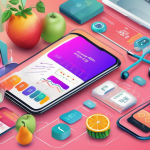How Mobile Health Apps Are Revolutionizing Healthcare
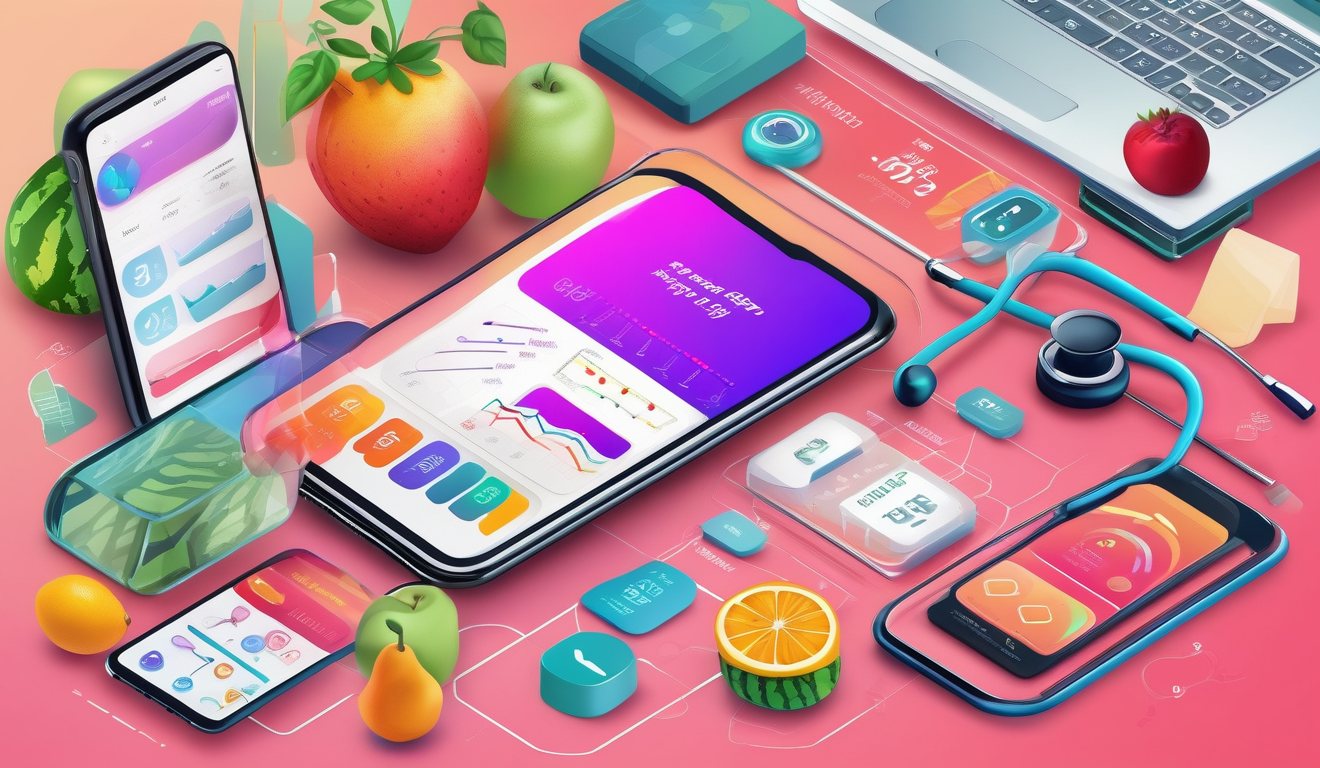
In today’s fast-paced world, mobile health apps are not just a trend; they are transforming the landscape of healthcare. Imagine having a personal health assistant right in your pocket, available 24/7. This is exactly what these apps offer, combining the power of technology with the need for accessible healthcare. The rise of smartphones has paved the way for innovations that empower patients, streamline communication, and enhance overall health outcomes.
Mobile health apps have gained immense popularity, driven by advancements in technology and increased smartphone usage. With over 3 billion smartphone users worldwide, the potential for health apps is staggering. Factors such as the growing demand for remote healthcare, the rise of chronic diseases, and the need for personalized health management have contributed to their rapid adoption. These apps are becoming essential tools for both patients and healthcare providers.
So, what makes mobile health apps so appealing to patients? For starters, they offer improved access to healthcare services. No longer do patients need to wait weeks for an appointment; they can connect with their providers instantly. Additionally, these apps provide personalized health monitoring, allowing users to track their fitness, nutrition, and even mental health. The result? A more engaged patient who takes charge of their own health journey.
By providing tools for self-management and education, mobile health apps foster greater patient involvement in their own care. This engagement is crucial because studies have shown that when patients are actively involved, they experience better health outcomes. It’s like having a coach cheering you on, reminding you of your goals and helping you stay on track.
For those managing chronic conditions, mobile health apps are game-changers. They enable patients to track their symptoms, medication, and vital signs effectively, leading to timely interventions. Imagine a diabetic patient using an app to monitor their blood sugar levels daily; this proactive approach can prevent complications and improve quality of life.
Medication adherence is crucial for treatment success. Mobile health apps remind patients to take their medications on time and provide valuable information on drug interactions. This feature is particularly beneficial for those on multiple medications, ensuring they are well-informed and compliant with their treatment plans.
Mobile health apps facilitate seamless communication between patients and healthcare providers. This interaction is vital for enhancing care quality, as it allows for quick updates on health status and immediate responses to concerns. Patients can send messages, share health data, and even schedule appointments—all through their mobile devices.
Despite their benefits, mobile health apps face several challenges, including data privacy concerns, varying levels of digital literacy, and regulatory hurdles. It’s essential to address these limitations to ensure that the potential of these apps is fully realized.
The collection and storage of personal health information raise significant privacy issues. Data security in mobile health applications is paramount, as breaches can lead to serious consequences for users. Developers must prioritize security measures to protect sensitive information.
Navigating the regulatory landscape can be challenging for mobile health app developers. Compliance with health regulations ensures that apps are safe and effective. Key regulations impacting development include HIPAA in the U.S. and GDPR in Europe, which aim to protect patient data while promoting innovation.
As technology continues to evolve, mobile health apps are poised to play an even greater role in healthcare. Future trends may include the integration of artificial intelligence for personalized recommendations and telemedicine features that allow for virtual consultations. The possibilities are endless, and as we embrace these innovations, the future of healthcare looks brighter than ever.
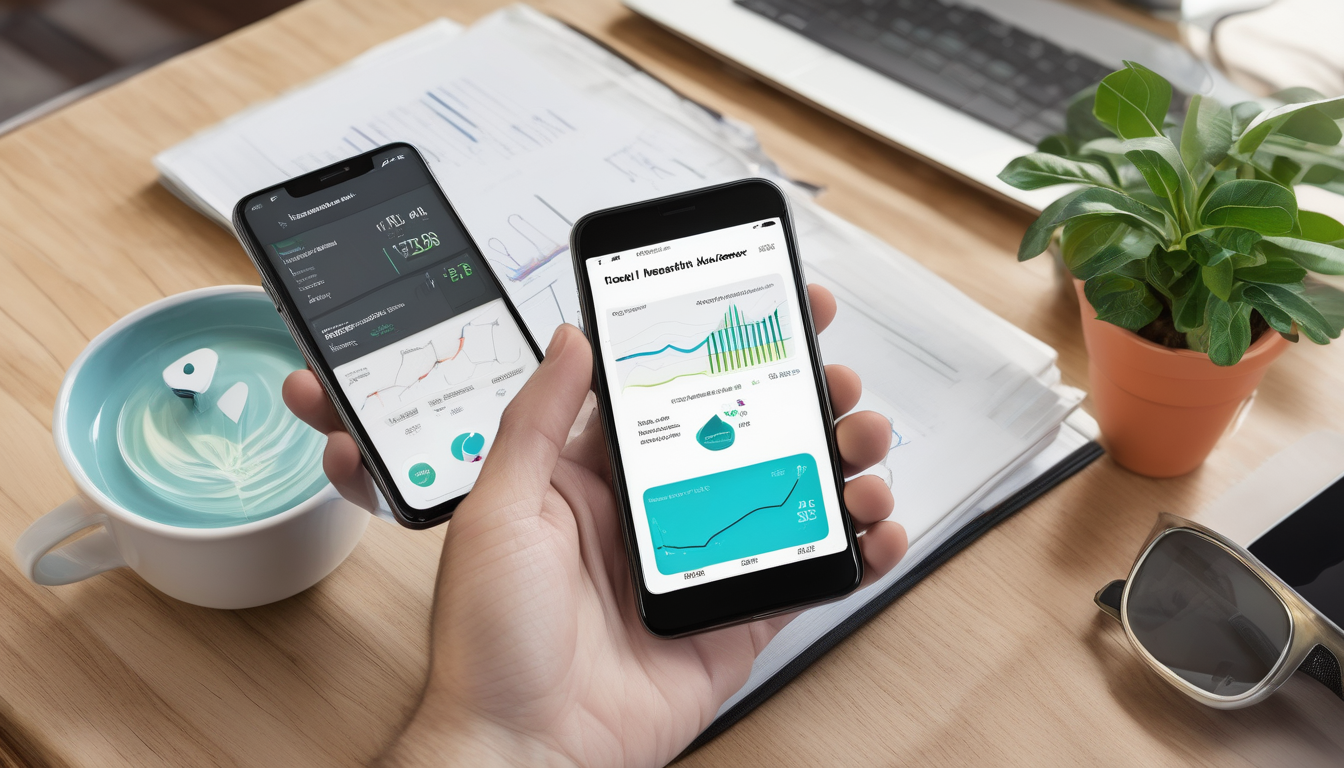
The Rise of Mobile Health Apps
Mobile health apps have truly taken the healthcare world by storm, and it’s not hard to see why. With the rapid advancements in technology and the explosion of smartphone usage, these applications have become a crucial part of our daily lives. Imagine having a personal health assistant right in your pocket, ready to help you track your fitness, manage your medications, or even connect you with your doctor at the click of a button. Sounds convenient, right? This convenience is one of the primary factors driving the rapid adoption of mobile health apps.
One major catalyst for this trend is the increasing prevalence of chronic diseases. As more people are diagnosed with conditions like diabetes, hypertension, and heart disease, the need for effective management tools has skyrocketed. Mobile health apps provide users with the ability to monitor their health metrics in real-time, giving them unprecedented control over their well-being. For instance, a diabetic patient can log their blood sugar levels and receive immediate feedback, which can be a game-changer for their treatment plan.
Moreover, the COVID-19 pandemic accelerated the shift towards digital health solutions. As healthcare systems struggled to cope with the surge in patients, telehealth and mobile health applications emerged as essential tools for maintaining patient care. Patients could consult with healthcare professionals without leaving their homes, reducing the risk of exposure to the virus. This shift not only highlighted the importance of mobile health apps but also demonstrated their potential to enhance healthcare delivery in times of crisis.
In addition to chronic disease management, mobile health apps cater to various aspects of health and wellness. From fitness tracking to mental health support, these applications are becoming increasingly versatile. Users can set fitness goals, track their workouts, meditate, or even receive therapy through their devices. The versatility of these apps makes them appealing to a broad audience, encouraging more individuals to engage with their health actively.
In summary, the rise of mobile health apps is a testament to how technology can transform healthcare. They offer remarkable benefits, from improved disease management to enhanced patient engagement. As we continue to embrace digital solutions, it’s clear that mobile health apps are not just a passing trend; they are here to stay, reshaping the landscape of healthcare for the better.
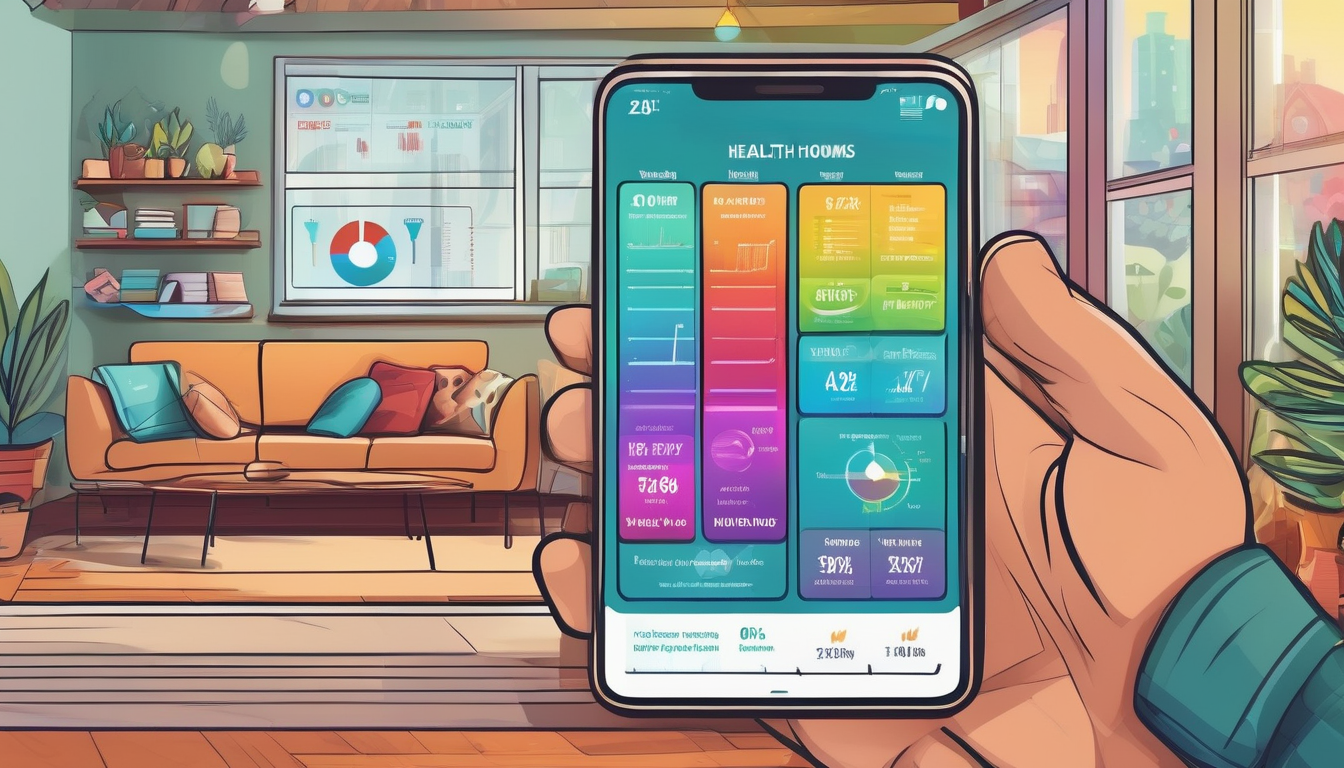
Benefits for Patients
Mobile health apps are not just a passing trend; they are fundamentally changing the way patients interact with their healthcare. Imagine having a personal health assistant right in your pocket! These apps offer a plethora of benefits that enhance the patient experience and improve health outcomes. One of the most significant advantages is improved access to healthcare services. Patients can connect with healthcare providers, schedule appointments, and even receive consultations from the comfort of their homes, eliminating the need for time-consuming visits to clinics.
Moreover, mobile health apps facilitate personalized health monitoring. They allow patients to track their vitals, symptoms, and overall health trends. For instance, a patient with diabetes can use an app to monitor their blood sugar levels daily, receiving real-time insights that can lead to timely interventions. This level of engagement empowers patients to take control of their health, turning them from passive recipients to active participants in their care.
Another critical benefit is the enhanced communication between patients and healthcare providers. With features like secure messaging, patients can easily ask questions, share concerns, and receive prompt feedback from their doctors. This seamless communication not only builds trust but also enhances the overall quality of care. Patients no longer have to wait days for a response to a simple query, which can be crucial in managing their health.
Furthermore, mobile health apps play a vital role in medication management. Forgetting to take medications can lead to serious health complications, but many apps come equipped with reminders and alerts. These notifications help patients stay on track with their prescribed regimens, ensuring they take their medications as directed. Some apps even provide information on potential drug interactions, which is invaluable for patients managing multiple prescriptions.
In summary, the benefits of mobile health apps for patients are profound. They not only improve access to healthcare but also foster engagement, enhance communication, and support medication adherence. As we continue to embrace technology in healthcare, these apps are paving the way for a more informed and proactive patient population.
Enhanced Patient Engagement
In today’s fast-paced world, patient engagement is more crucial than ever, and mobile health apps are stepping up to the plate. These digital tools are not just a convenience; they are transforming the way patients interact with their health and healthcare providers. Imagine having a personal health assistant in your pocket, available 24/7, ready to guide you through your health journey. Sounds incredible, right?
Mobile health apps empower patients by offering a plethora of features that promote self-management and education. For instance, users can access a wealth of information about their conditions, treatment options, and lifestyle changes. This access leads to informed decision-making, allowing patients to take charge of their health. With the ability to monitor symptoms, track progress, and receive tailored advice, patients are no longer passive recipients of care; they are active participants.
Moreover, these apps often incorporate gamification elements, turning health management into an engaging experience. Patients can set goals, earn rewards, and even compete with friends or family members. This not only makes the process enjoyable but also fosters a sense of community and accountability. For example, a diabetes management app might allow users to share their progress with friends, creating a supportive network that motivates everyone involved.
Additionally, mobile health apps enable real-time feedback and reminders. Imagine receiving a gentle nudge to take your medication or an alert when it’s time for a check-up. These features significantly improve adherence to treatment plans, leading to better health outcomes. According to recent studies, patients who use mobile health apps report higher satisfaction levels and improved health metrics compared to those who do not.
In summary, the enhanced patient engagement facilitated by mobile health apps is a game-changer in the healthcare landscape. By putting the power of health management in the hands of patients, these applications not only improve individual health outcomes but also contribute to a more efficient healthcare system overall. As we continue to embrace technology, the future of patient engagement looks brighter than ever.
Monitoring Chronic Conditions
In today’s fast-paced world, managing chronic conditions can feel like trying to juggle flaming torches while riding a unicycle. It’s challenging, but mobile health apps are here to help ease that struggle. These innovative tools empower patients by enabling them to monitor their health in real time, ensuring they stay on top of their conditions with less hassle.
For individuals living with chronic illnesses such as diabetes or hypertension, mobile health apps offer a lifeline. By providing features like blood sugar tracking, blood pressure monitoring, and medication reminders, these apps transform the way patients engage with their health. Imagine having a personal health assistant in your pocket, ready to remind you when to take your medication or alert you if your readings are out of the normal range. It’s like having a guardian angel for your health!
Furthermore, many of these apps come equipped with data visualization tools, allowing users to see their health trends over time. This not only fosters a deeper understanding of their condition but also motivates them to make healthier choices. For instance, a patient can easily identify patterns in their blood glucose levels and adjust their diet or activity levels accordingly. Here’s a quick look at some of the key features:
| Feature | Description |
|---|---|
| Real-time Monitoring | Track vital signs and symptoms instantly. |
| Medication Reminders | Get alerts for taking medications on time. |
| Data Sharing | Share health data with healthcare providers seamlessly. |
| Personalized Insights | Receive tailored advice based on health data. |
Ultimately, mobile health apps not only help patients manage their chronic conditions effectively but also foster a sense of independence and control over their health journey. With these tools, patients can take charge, ensuring they’re not just passive recipients of care but active participants in their health management. So, why not embrace the future of healthcare? With a little help from technology, monitoring chronic conditions has never been easier!
Medication Management
In today’s fast-paced world, keeping track of medications can feel like a daunting task. Fortunately, mobile health apps are stepping in to simplify this process, acting like a personal assistant that never forgets. These applications help patients manage their prescriptions efficiently, ensuring they never miss a dose. Imagine having a tiny health coach in your pocket, reminding you when it’s time to take your medicine!
One of the standout features of these apps is their ability to send reminders to users. This means no more sticky notes on the fridge or alarms on your phone that you might ignore. With a quick notification, patients are prompted to take their medications at the right time, which is crucial for maintaining treatment effectiveness. For instance, a user managing diabetes can receive alerts to check their blood sugar and take their insulin, thereby avoiding potential complications.
Moreover, these apps often come equipped with comprehensive databases that provide essential information about medications. Users can easily access details about dosages, potential side effects, and even drug interactions. This feature is invaluable, as it empowers patients to make informed decisions about their health. For example, if a patient is prescribed a new medication, they can quickly check if it interacts with what they are already taking, reducing the risk of adverse effects.
To illustrate the benefits of medication management through mobile health apps, consider the following table:
| Feature | Benefit |
|---|---|
| Medication Reminders | Ensures timely intake and adherence to prescribed regimens. |
| Drug Interaction Checker | Helps prevent adverse reactions by checking compatibility of medications. |
| Dosage Information | Provides clear guidance on how much medication to take and when. |
In essence, mobile health apps are not just tools; they are lifelines that enhance medication management. They promote better adherence, reduce the likelihood of errors, and ultimately contribute to improved health outcomes. As we embrace this digital era, it’s clear that these apps are revolutionizing the way we think about medication management, making it easier and more efficient than ever before.
Improved Communication with Providers
In the fast-paced world of healthcare, communication can make or break a patient’s experience. Mobile health apps are stepping up to the plate, transforming how patients interact with their healthcare providers. Imagine having a direct line to your doctor, where questions can be answered instantly and concerns addressed without the hassle of scheduling an appointment. This is the reality that mobile health apps are creating.
These applications serve as a bridge, connecting patients and providers in ways that were previously unimaginable. For instance, patients can send messages, share vital health data, and even schedule appointments all from the palm of their hand. This immediacy not only enhances the patient experience but also fosters a sense of partnership in health management. When patients feel they can communicate openly, they are more likely to engage in their care and adhere to treatment plans.
Moreover, mobile health apps allow for real-time updates. Imagine being able to notify your doctor about a sudden change in your condition through a quick message. This capability can lead to timely interventions, preventing complications and ensuring that patients receive the right care at the right time. The ability to share data such as blood sugar levels or blood pressure readings directly with healthcare providers empowers both parties to make informed decisions.
However, effective communication goes beyond just messaging. Many mobile health apps include features like video consultations, allowing patients to have face-to-face interactions with their healthcare providers, no matter where they are. This is especially beneficial for those living in remote areas or for individuals with mobility challenges. The convenience of accessing care from home can significantly reduce the stress associated with traditional healthcare visits.
In summary, mobile health apps are revolutionizing communication in healthcare. They break down barriers, enhance engagement, and ultimately lead to better health outcomes. As these technologies continue to evolve, we can expect even more innovative solutions to emerge, making healthcare more accessible and personalized than ever before.
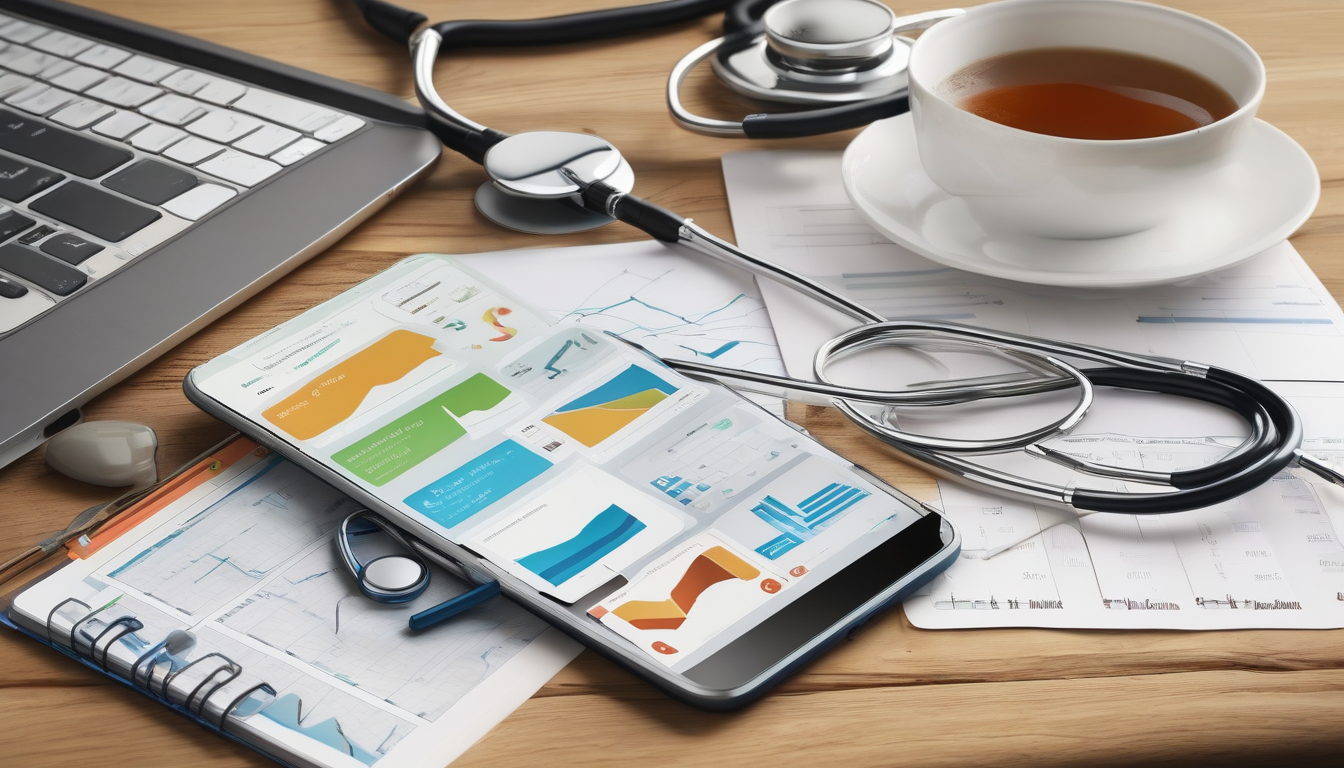
Challenges and Limitations
While mobile health apps have made significant strides in enhancing healthcare delivery, they are not without their . One of the most pressing issues is data privacy concerns. With the collection and storage of personal health information, patients often worry about who has access to their data and how it is being used. In a world where data breaches are becoming alarmingly common, ensuring that sensitive health information is protected is paramount. Patients must feel confident that their details are secure, and developers must prioritize data security in their apps.
Another challenge is the varying levels of digital literacy among users. Not everyone is tech-savvy, and this disparity can hinder the effective use of mobile health applications. For some individuals, navigating an app can feel like trying to solve a complex puzzle without the right pieces. This can lead to frustration and disengagement, ultimately impacting the app’s effectiveness in improving health outcomes. To address this, developers need to create user-friendly interfaces and offer educational resources to help users maximize the benefits of these tools.
Furthermore, the regulatory landscape presents its own set of hurdles. Mobile health app developers often find themselves navigating a complex web of regulations that can vary significantly by region. Compliance with these regulations is not only essential for legal operation but also for ensuring patient safety. For instance, regulations regarding the accuracy of health information and the necessity for clinical validation can be daunting for developers. This complexity can slow down innovation and limit the potential for new, groundbreaking applications.
| Challenge | Description |
|---|---|
| Data Privacy Concerns | Patients worry about the security of their personal health information. |
| Digital Literacy | Not all users are comfortable with technology, which can hinder app usage. |
| Regulatory Hurdles | Developers face complex regulations that can slow down innovation. |
In summary, while mobile health apps offer a plethora of benefits, addressing these challenges is crucial for their continued success and acceptance in the healthcare landscape. By prioritizing data security, enhancing user education, and navigating regulatory requirements effectively, the potential for mobile health apps to transform healthcare remains bright.
Data Privacy Concerns
In the age of technology, where our lives are increasingly intertwined with digital solutions, have risen to the forefront of discussions surrounding mobile health apps. These applications, while revolutionizing healthcare, also collect vast amounts of personal health information, raising significant questions about how this data is stored, used, and protected. Imagine sharing your most sensitive health details with an app—it’s a leap of faith that not everyone is comfortable making.
One of the primary concerns is the potential for data breaches. With cyber threats becoming more sophisticated, the risk of unauthorized access to personal health information is a genuine worry. Patients often wonder: “Who has access to my data?” and “How secure is it?” This uncertainty can lead to hesitance in using these apps, despite their numerous benefits.
Moreover, the issue of consent is critical. Many users may not fully understand the privacy policies they agree to when downloading an app. Often, these policies are lengthy and filled with legal jargon, making it hard for the average person to grasp what they are consenting to. This lack of transparency can erode trust, which is essential in healthcare.
Another layer to consider is the potential for data misuse. There are concerns about how companies might use health data for purposes beyond patient care, such as marketing or research, without explicit consent. This brings us to the importance of robust regulations that ensure patient data is handled ethically and responsibly.
To address these concerns, developers must prioritize data security measures. This can include:
- Implementing strong encryption protocols
- Regularly updating security systems to combat new threats
- Providing clear and concise privacy policies
In conclusion, while mobile health apps hold incredible potential to enhance healthcare delivery, the concerns surrounding data privacy cannot be overlooked. Stakeholders must work collaboratively to create a safe environment where patients feel secure sharing their health information. Only then can we fully harness the benefits of these innovative technologies.
Regulatory Hurdles
When it comes to mobile health apps, navigating the regulatory landscape can feel like trying to find your way through a maze without a map. The healthcare industry is heavily regulated, and mobile health apps must adhere to a myriad of laws and standards to ensure patient safety and data security. This can be a daunting task for developers who are eager to bring innovative solutions to market.
One of the primary challenges is understanding the Health Insurance Portability and Accountability Act (HIPAA) in the United States, which governs the privacy and security of health information. Developers must ensure that their apps are compliant, which often requires implementing robust security measures and conducting thorough risk assessments. Failure to comply can lead to hefty fines and loss of trust from users, which is something no app developer wants.
Moreover, different countries have various regulatory bodies and standards. For instance, in Europe, the General Data Protection Regulation (GDPR) imposes strict rules on data collection and user consent. This adds another layer of complexity for developers who want to reach a global audience. They not only have to comply with local laws but also with international regulations, which can be a logistical nightmare.
In addition to privacy regulations, there are also challenges related to clinical validation. Many mobile health apps claim to provide diagnostic or therapeutic benefits, which may require approval from regulatory agencies like the Food and Drug Administration (FDA) in the U.S. This process can be lengthy and costly, often deterring startups from pursuing the necessary certifications.
To summarize, the regulatory hurdles for mobile health apps are multifaceted and can significantly impact their development and deployment. Developers must be well-versed in the following key areas:
- Compliance with HIPAA and GDPR
- Understanding clinical validation requirements
- Navigating different regulatory environments across countries
As mobile health technology continues to evolve, it is crucial for developers to stay informed about regulatory changes and adapt their strategies accordingly. By doing so, they can not only ensure compliance but also enhance user trust and engagement, paving the way for a successful future in the healthcare landscape.
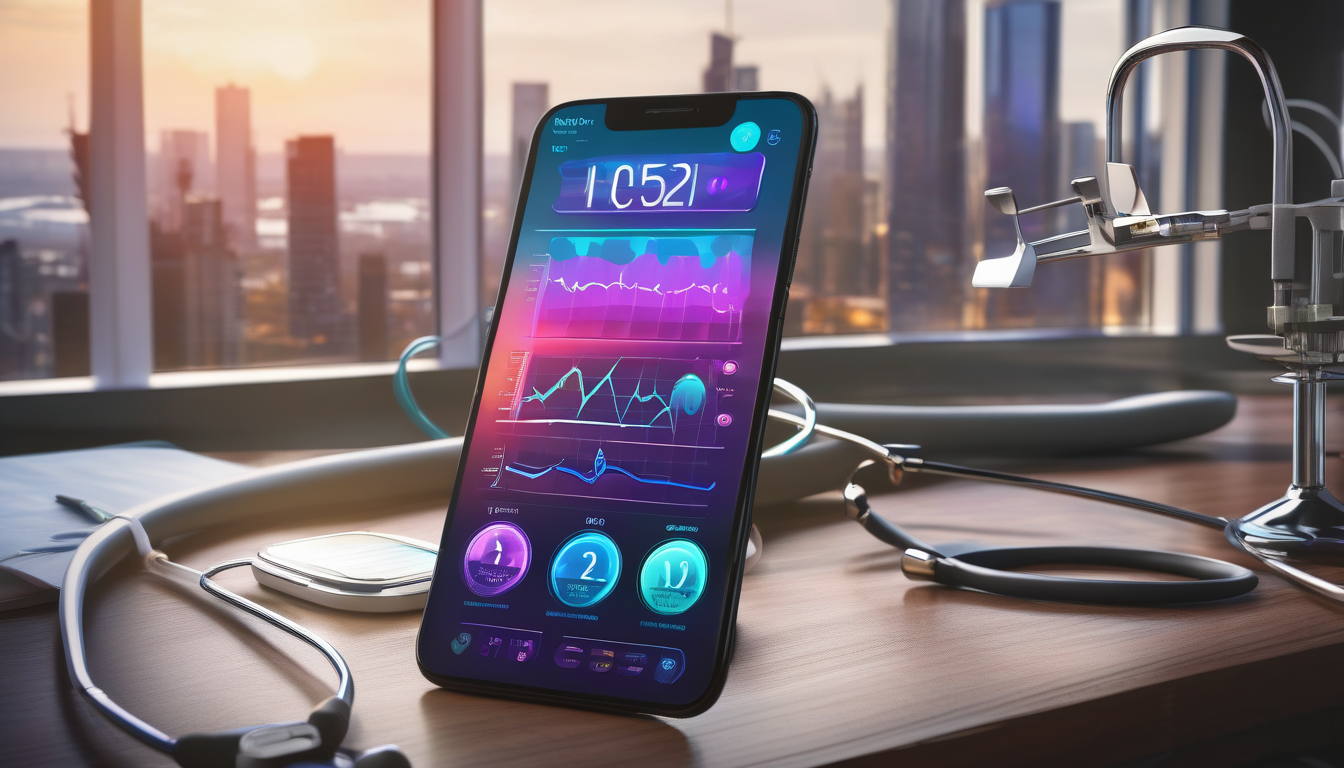
The Future of Mobile Health Apps
The future of mobile health apps is nothing short of exciting and transformative. As technology continues to advance at a breakneck pace, these applications are set to become an integral part of our healthcare system. Imagine a world where your phone not only tracks your steps but also monitors your heart rate, reminds you to take your medication, and even alerts your doctor in case of anomalies. This is not science fiction; it’s the next frontier in personal healthcare.
One of the most promising developments on the horizon is the integration of artificial intelligence (AI) and machine learning into mobile health apps. These technologies will enable apps to analyze vast amounts of health data to provide personalized recommendations. For instance, an app could learn your health patterns over time and suggest lifestyle changes or alert you to potential health risks before they become serious. This proactive approach to health management could revolutionize how we view healthcare.
Additionally, the rise of wearable technology will further enhance the capabilities of mobile health apps. Devices like smartwatches and fitness trackers can collect real-time data, which can be seamlessly integrated into health apps. This means that monitoring chronic conditions or tracking fitness goals will become more accurate and efficient. Users will have a comprehensive view of their health, empowering them to make informed decisions.
However, with great potential comes great responsibility. As mobile health apps evolve, issues surrounding data privacy and security will need to be addressed. Developers must ensure that sensitive health information is protected and that users feel safe sharing their data. This is where regulatory frameworks will play a crucial role. Governments and health organizations will need to establish guidelines that protect consumers while fostering innovation.
In conclusion, the future of mobile health apps is bright, filled with opportunities for improved patient care and health outcomes. As we continue to embrace technology, it’s essential to remain vigilant about the challenges that come with it. The journey ahead promises to be revolutionary, and those who adapt will undoubtedly find themselves at the forefront of a new era in healthcare.
Frequently Asked Questions
- What are mobile health apps?
Mobile health apps are applications designed for smartphones and tablets that help users manage their health and wellness. They can track fitness, monitor chronic conditions, and even facilitate communication with healthcare providers.
- How do mobile health apps benefit patients?
These apps provide numerous benefits, such as improved access to healthcare services, personalized health monitoring, and enhanced communication with providers. They empower patients to take charge of their health, leading to better outcomes.
- Can mobile health apps help manage chronic conditions?
Absolutely! Mobile health apps are particularly effective for tracking chronic conditions like diabetes and hypertension. They allow patients to monitor their symptoms and receive timely reminders for medication, ensuring better management of their health.
- Are there any privacy concerns with mobile health apps?
Yes, data privacy is a significant concern. Many apps collect personal health information, and it’s crucial for users to choose apps that prioritize data security and comply with relevant regulations to protect their information.
- What challenges do mobile health apps face?
Mobile health apps encounter several challenges, including data privacy issues, varying levels of digital literacy among users, and regulatory hurdles that can complicate development and deployment.
- What does the future hold for mobile health apps?
As technology advances, mobile health apps are expected to become even more integral to healthcare. Innovations may include enhanced AI features, better integration with healthcare systems, and more personalized user experiences.




